LONDON: In recent months, informal ads for “affordable Syrian brides” have been circulating on Iraqi social media platforms, some of which reinforced stereotypes about Syrian women with lines such as: “Marry a Syrian woman for $100 and enjoy delicious food and a lovely dialect.”
The controversial posts, which have attracted the attention of local media, are captioned as if they were advertising movable property, with one reading: “You can hear to'borni (a Syrian pet name) at home for only 500,000 dinars” – the equivalent of $380.
Men who support the trend complain about the exorbitant mahrs demanded by Iraqi women, which often range from $10,000 to $20,000, locals told Arab News. In addition, they say, prospective Iraqi brides often also demand real estate, expensive jewelry and cars.
Mahr is an obligatory gift from the groom to his bride as a sign of security and respect in Muslim societies and often has legal significance in marriage contracts.
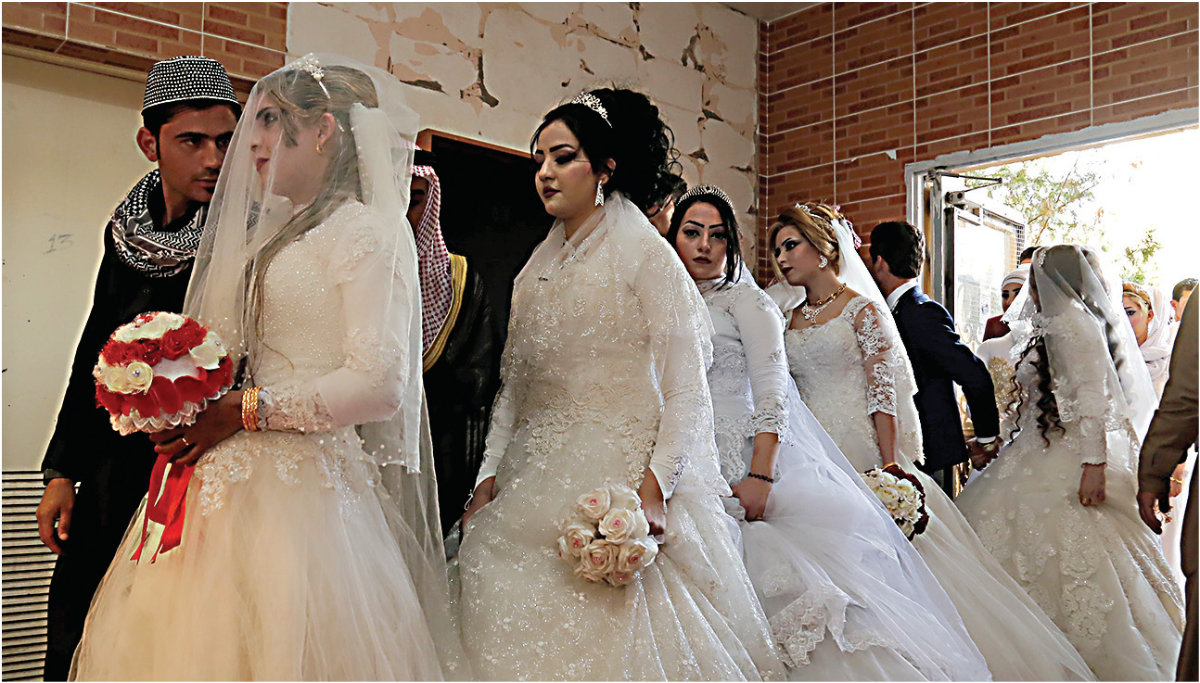
The sheer volume of online posts, particularly on the video-sharing platform TikTok, suggests that this trend is real. Commentators have expressed outrage at the posts, saying the rhetoric is degrading to both Syrian and Iraqi women.
More than a decade of violence, displacement, economic hardship and insecurity has already compromised the dignity of Syrian women. In neighboring countries where they sought safety and economic security, they are now suffering a form of commercialization.
Many Syrian women are now the sole breadwinners for their families and are looking for work in neighboring countries, including Iraq, as the economic situation in their home country deteriorates.
Faced with the harsh reality of being a single woman in a conservative society and in countries where the law offers limited protection, some have agreed to marry locals for little or no money.
Sattam Jadaan Al-Dandah, Syria's ambassador to Iraq, announced in January that about 5,000 marriages between Syrian women and Iraqi men had been documented in 2023 alone.
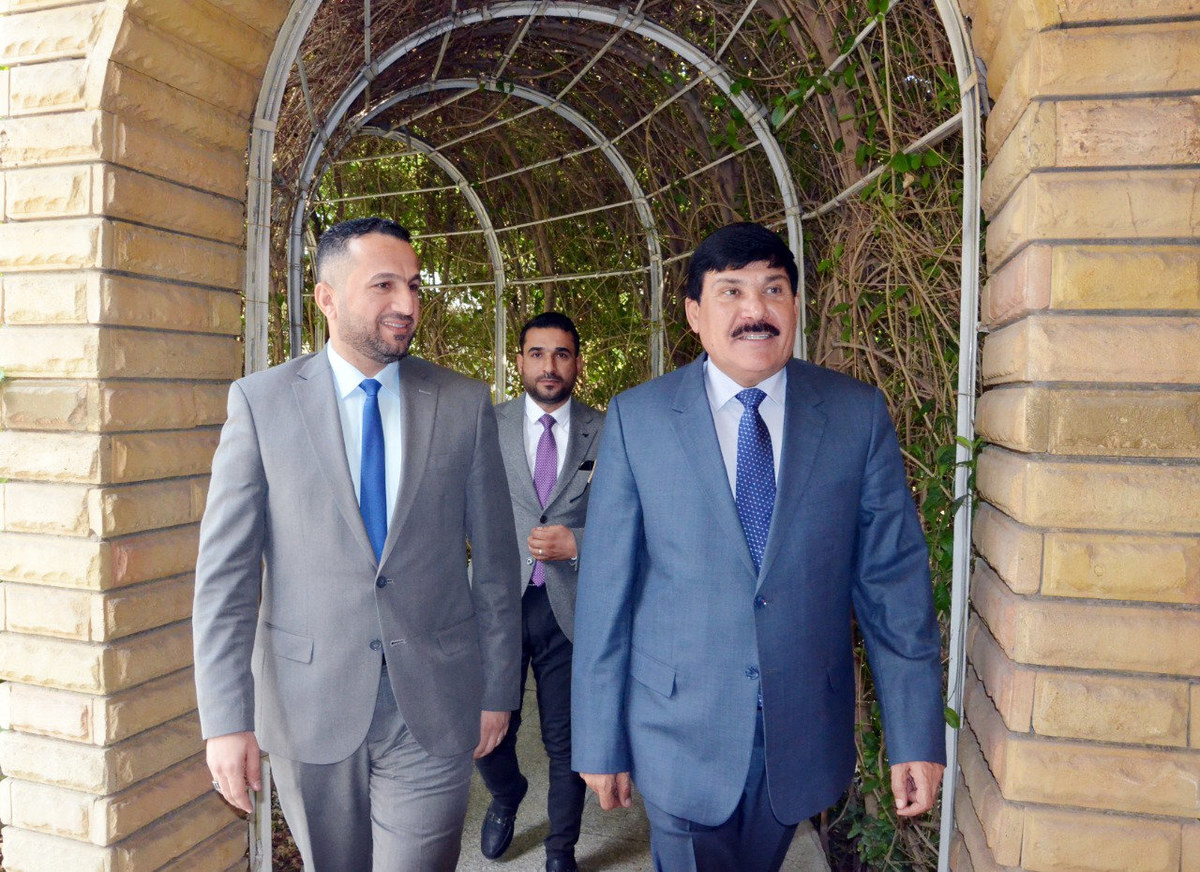
According to the United Nations Development Programme's 2024 Gender Inequality Index, Iraq is the fifth worst country in the world for women and girls, despite many recent efforts to combat gender inequality.
“Syrian women in countries like Iraq, where the law does not provide adequate protection, often face harassment, exploitation and even trafficking,” Mouna Khaity, a Syrian feminist and researcher based in the UK, told Arab News.
“The main reasons why Syrian women in almost all neighboring host countries agree to such arrangements – many even seek them – are the need for protection and the desire to escape a deteriorating economic situation.”
Thirteen years of conflict and economic sanctions have pushed 90 percent of Syria's population below the poverty line, creating a new social norm in which families struggle to survive without the labor of women.
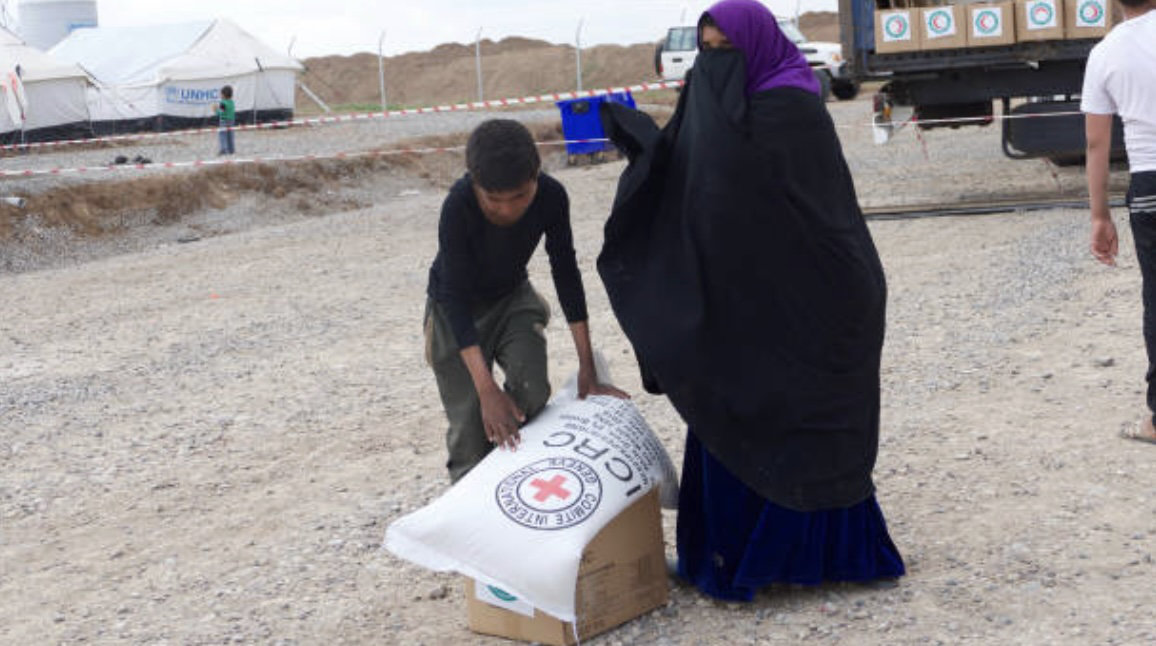
“Under relatively normal circumstances, the communities and families of women and girls would provide some degree of protection, even if this sometimes leads to unwanted interference or even control,” Khaity said.
The loss of this protection due to displacement has left Syrian women and girls even more at risk.
About 5.4 million Syrians live in five countries in the region – Turkey, Lebanon, Jordan, Iraq and Egypt – and more than 70 percent of them are women, according to UN figures.
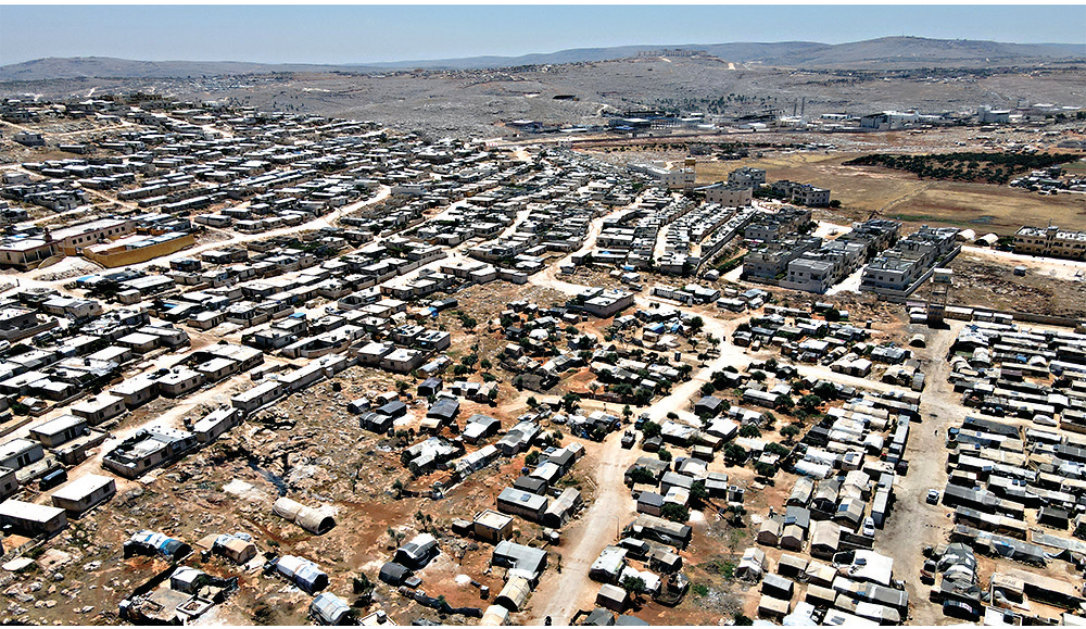
“Women who need protection accept a lower mahr than women who live in their home country under the protection of their family,” said Khaity.
However, a woman's decision to marry for economic reasons is “often not a personal decision but a collective family decision, with women – even girls – convinced that this is an opportunity for a better life.”
“This is often seen in refugee camps, where women do not even have the opportunity to vote. Marrying a local can be seen as a convenient way to transform oneself from a beggar to a dignified and protected woman.”
In 2016, the Norwegian Refugee Council reported a worrying increase in child marriages in Syrian refugee communities, with girls as young as 13 being married.
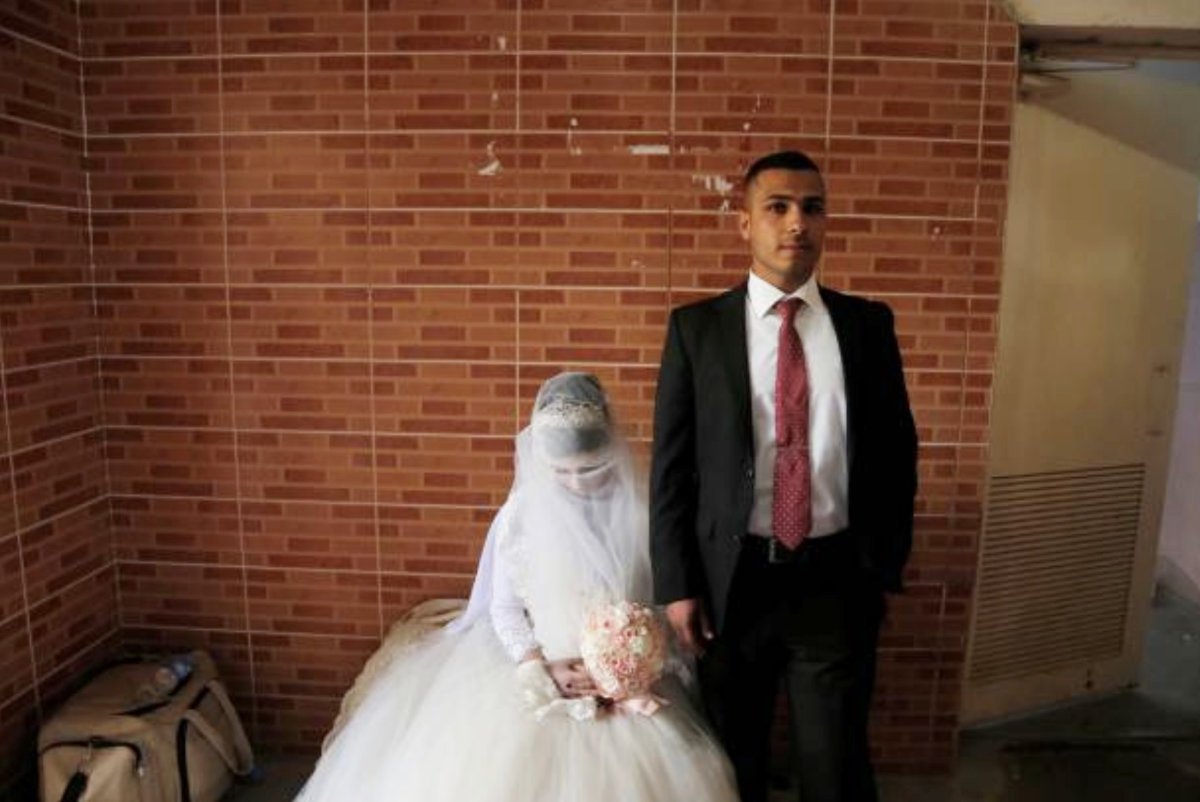
A 2023 report by American Near East Refugee Aid, a nongovernmental organization that serves the needs of refugees and vulnerable communities in Palestine, Lebanon and Jordan, found that 41 percent of Syrian refugee women between the ages of 20 and 24 in Lebanon were married before their 18th birthday.
Stressing that the situation was created by “multiple layers of discrimination and injustice,” Khaity said that blame for such marriages should not be placed solely on individuals or families, but on “entire systems” that have normalized the exploitation of Syrian women through a lack of accountability.
“Neighbouring countries are not making any effort to integrate Syrian refugees. They are excluded by local communities and exploited by politicians for economic gain,” she said.
Women have historically been disadvantaged by deep-rooted gender economic inequalities. The war has only widened this gap, even as the proportion of women earning income has increased.
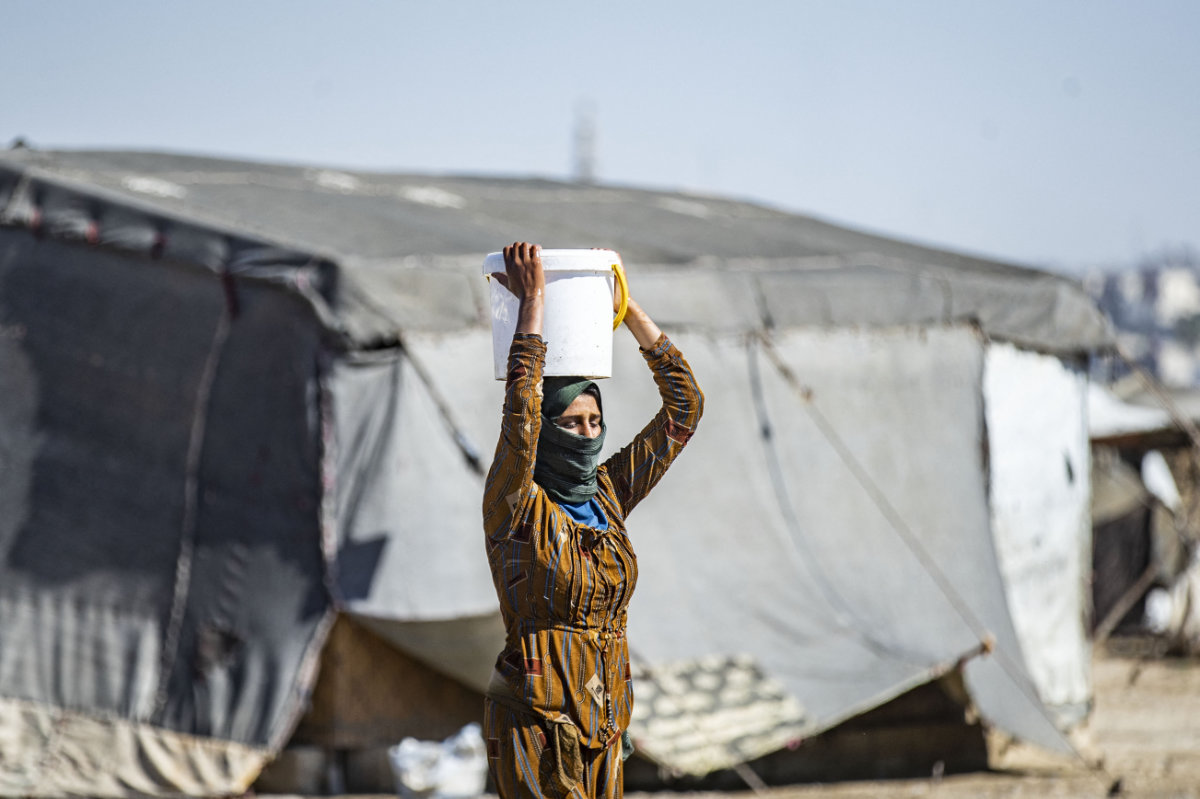
“Historically, Middle Eastern societies have accumulated wealth in the hands of men, thereby forcing women into a high degree of dependence on men,” says Khaity, adding that this has been achieved through “political systems, social norms and religious institutions.”
“Obedience to the husband was often linked to the man's financial superiority and dominance and, consequently, to the woman's dependence on him. There are financial resources to which women do not have access.”
She added: “The war has exacerbated inequalities, impoverished most of the population, increased women’s vulnerability and displaced millions of people – all of which have devastated Syrian society.
“As a result, many Syrian women seek to marry locals in host countries in order to protect themselves and often their families from all kinds of humiliation – especially in societies that are hostile towards them.”
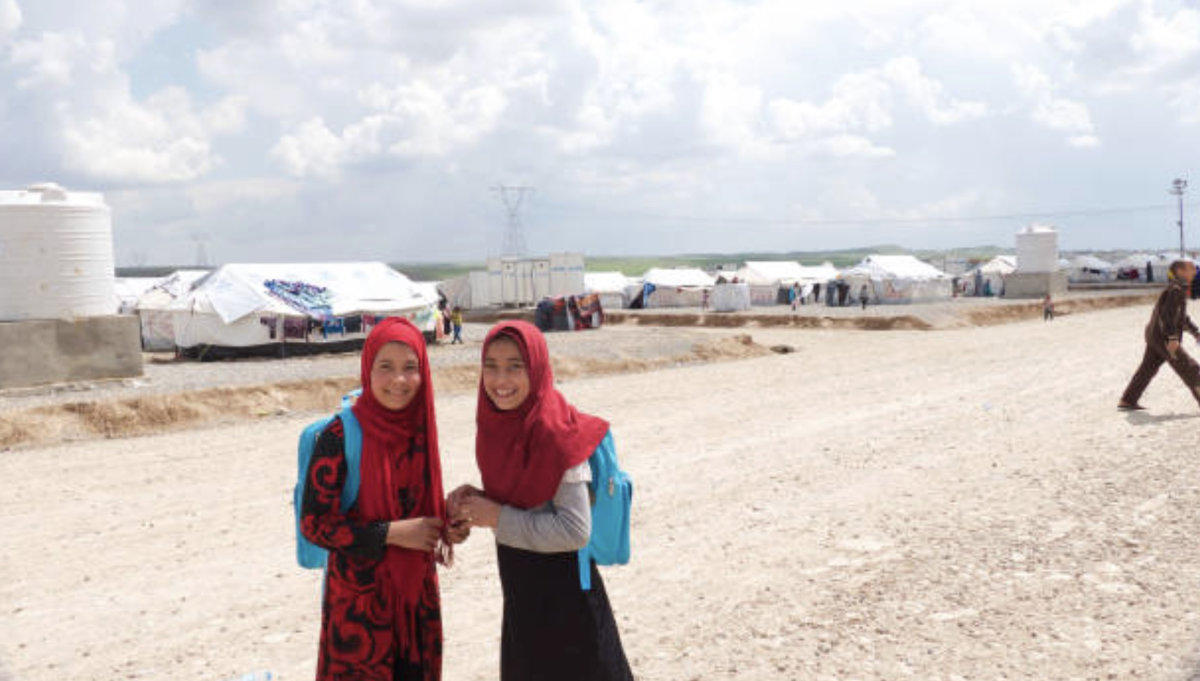
Since the outbreak of civil war in 2011, which forced millions to flee abroad, Syrians in Lebanon, Turkey and Jordan have been subjected to repeated waves of violence and threats of deportation.
Douna Haj Ahmed, a Syrian human rights activist living in the UK, believes this new status quo has created “a form of modern slavery in which Syrian women are traded as commodities under the guise of marriage.”
She told Arab News that the marriage arrangements promoted on Iraq's social media “reduce women to mere objects for sale” and that the phenomenon was “a stark reminder of how conflict and poverty can lead to the revival of exploitative systems that resemble slavery.”
She added: “Such exploitation is not only unethical but also profoundly inhumane. A marriage should be based on mutual respect and genuine affection, not on the exploitation of the needs of the weaker partner.”
Thirteen years of conflict and displacement have made Syrian women “a class of their own,” Khaity said. “The dehumanization of Syrian women is tolerated and it is assumed that they now have fewer rights.”

Both activists also believe that Syrian women have been commodified by misleading television dramas. Iraqi TikTok posts promoting marriage to Syrian women even feature clips from controversial Syrian shows depicting Damascene women as part of an obedient, attentive harem.
According to Khaity, the drama genre known in Syria as “Al-Bi'a Al-Shamiyeh” – or Damascus culture – has spread an “untrue, historically inaccurate and unfair image of Syrian women and their role in society”.
Since the 1990s, numerous Syrian dramas have portrayed the women of Damascus as ravishing beauties with an innate talent for cooking, housekeeping and seduction. They eagerly attend to their husbands' needs, massage their feet, shower them with affection and even feed them by hand.
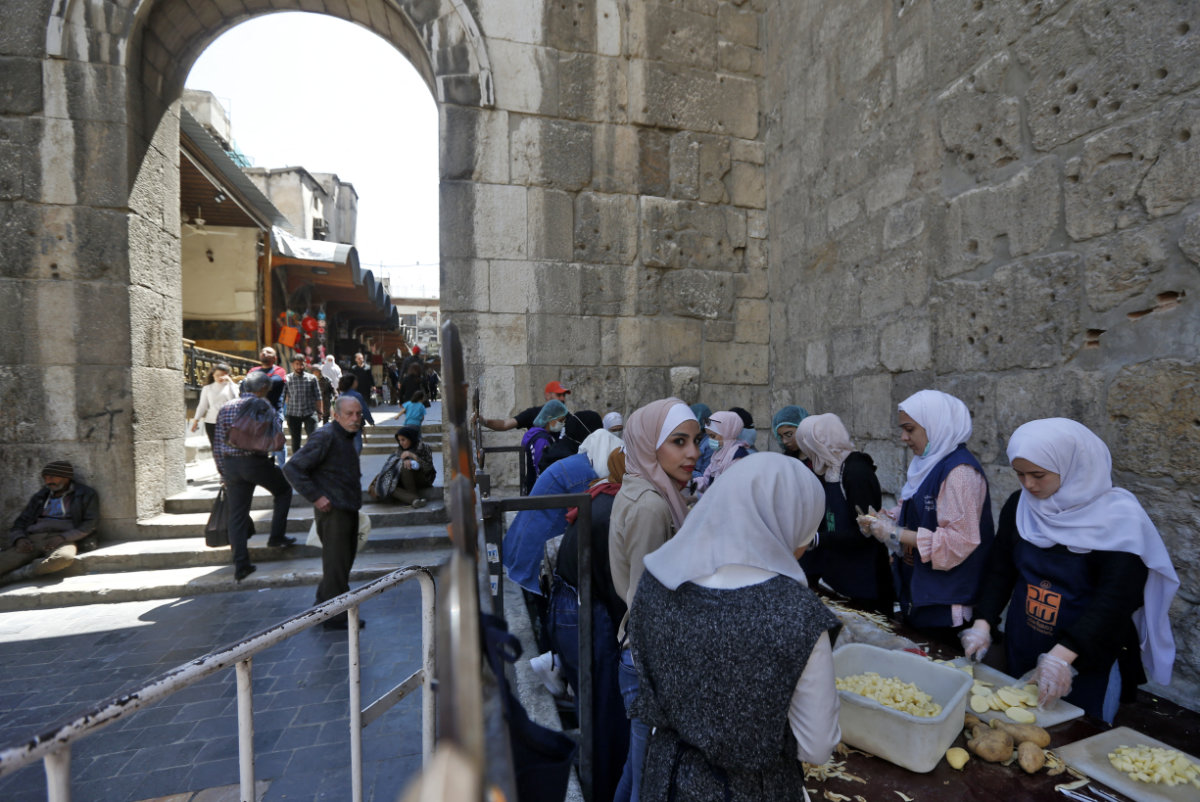
The popularity of Syrian drama series in the Arabic-speaking world has contributed significantly to the creation and reinforcement of such harmful stereotypes.
“For decades, Syrian drama has shaped the image of the Syrian woman as an obedient servant to her husband, whose life revolves around meeting his needs by cooking and cleaning during the day and caring for him and giving him pleasure at night,” says Haj Ahmed.
“This negative portrayal has reinforced outdated and misleading ideas about the role of women in Syrian society.”
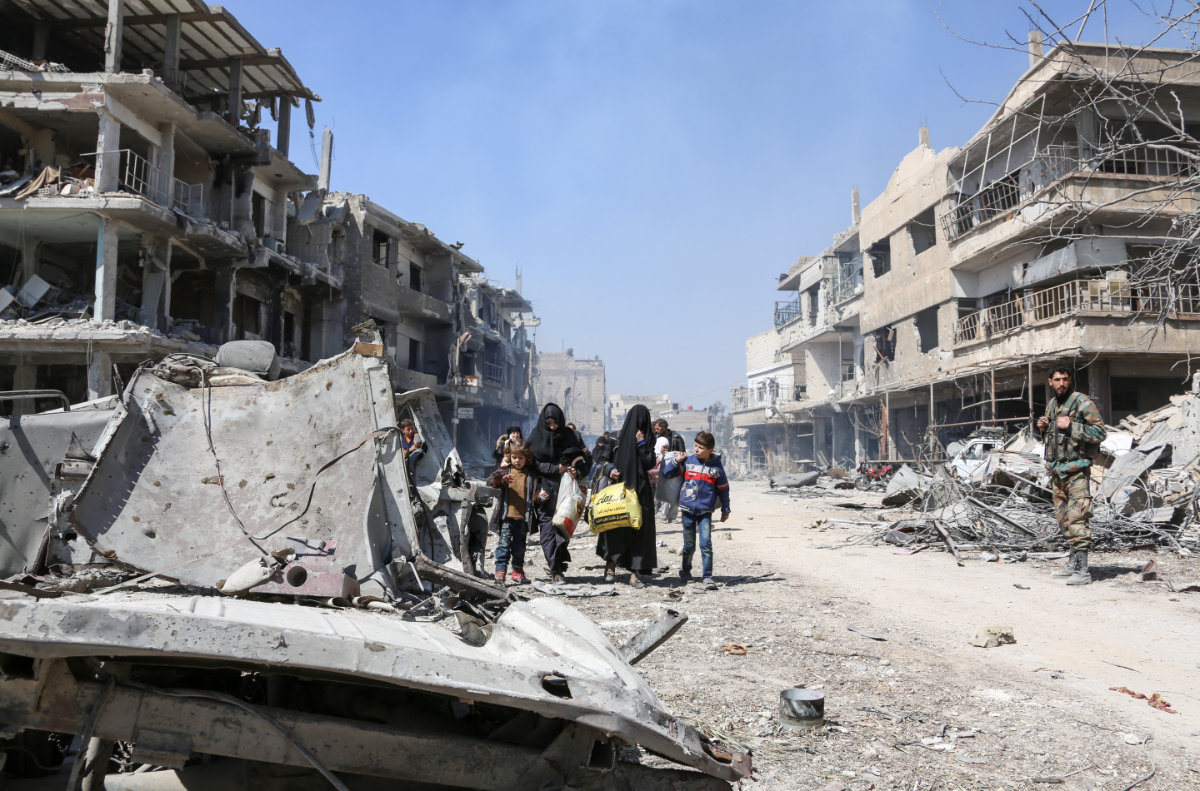
Haj Ahmed said that given the harsh economic circumstances, “many young men in Arab countries have seen the war in Syria as an opportunity to fulfill unhealthy marriage desires.
“They have exploited the vulnerability of Syrian girls caused by war and poverty, forcing some Syrian families to make harsh compromises and accept any suitor for their daughters in a desperate attempt to ease the family's financial burden.”
She added that the social media trend of offering Syrian brides for $100 “goes beyond discrimination and hate speech” and “reflects the patriarchal mentality that objectifies women, especially in times of war and disaster.”
“This narrative confirms that women are among the first to suffer in such situations. What Syrian women are experiencing is a recurring scenario for women in all conflict zones.”

